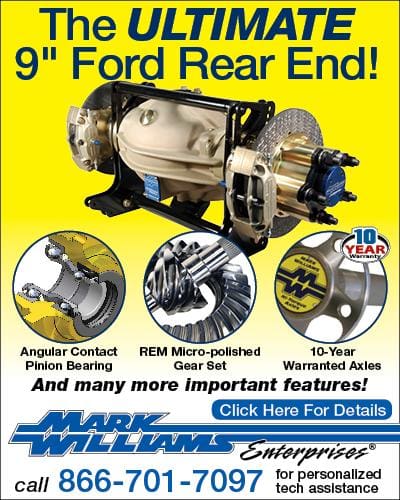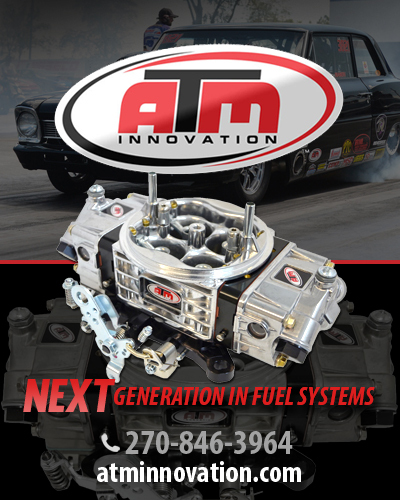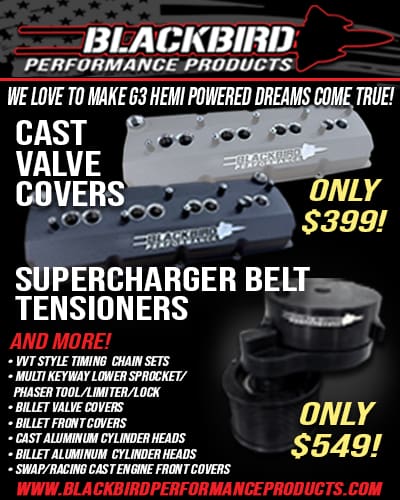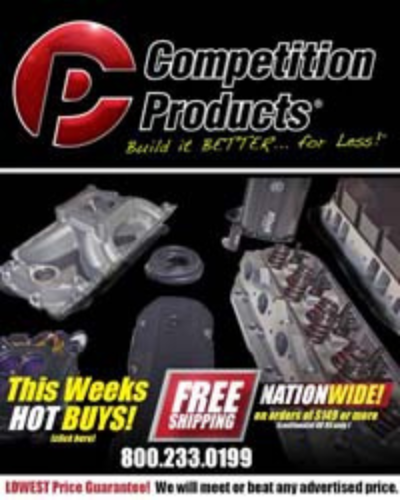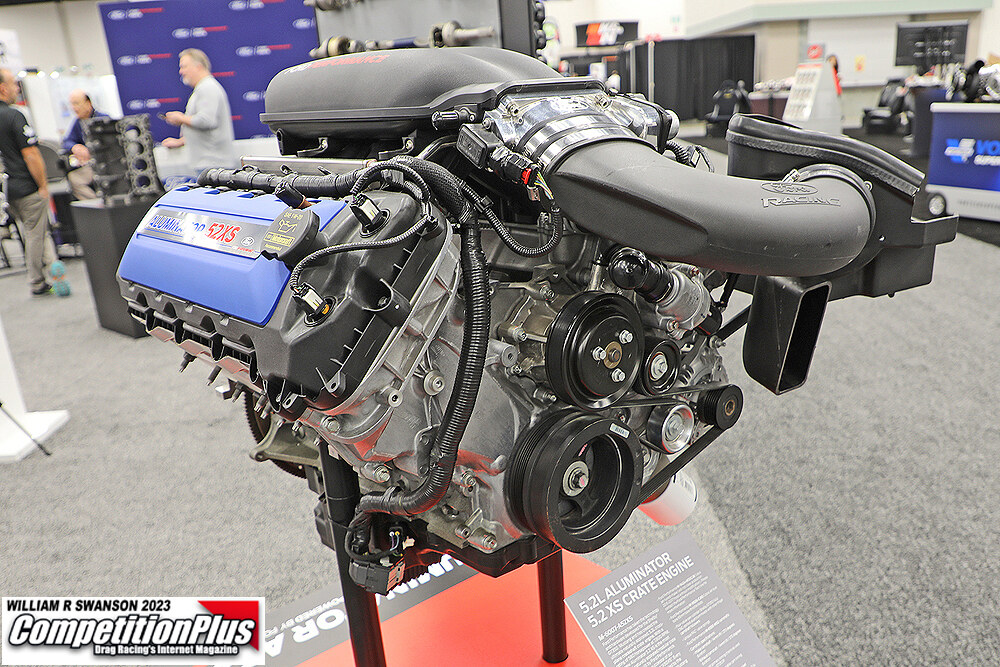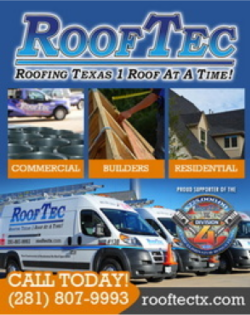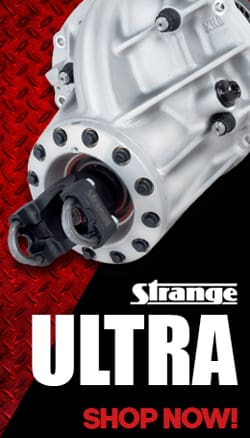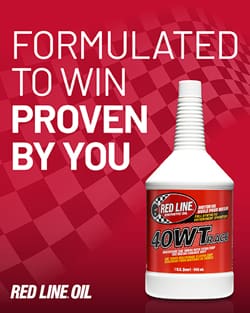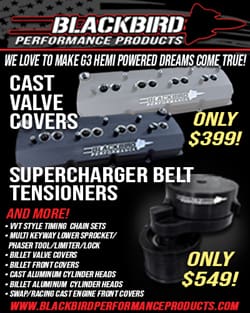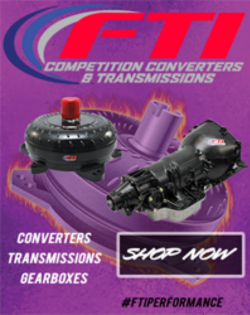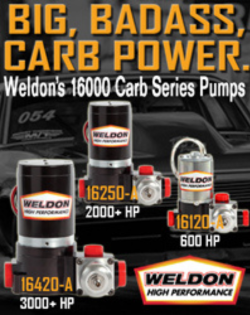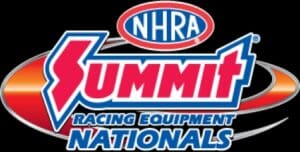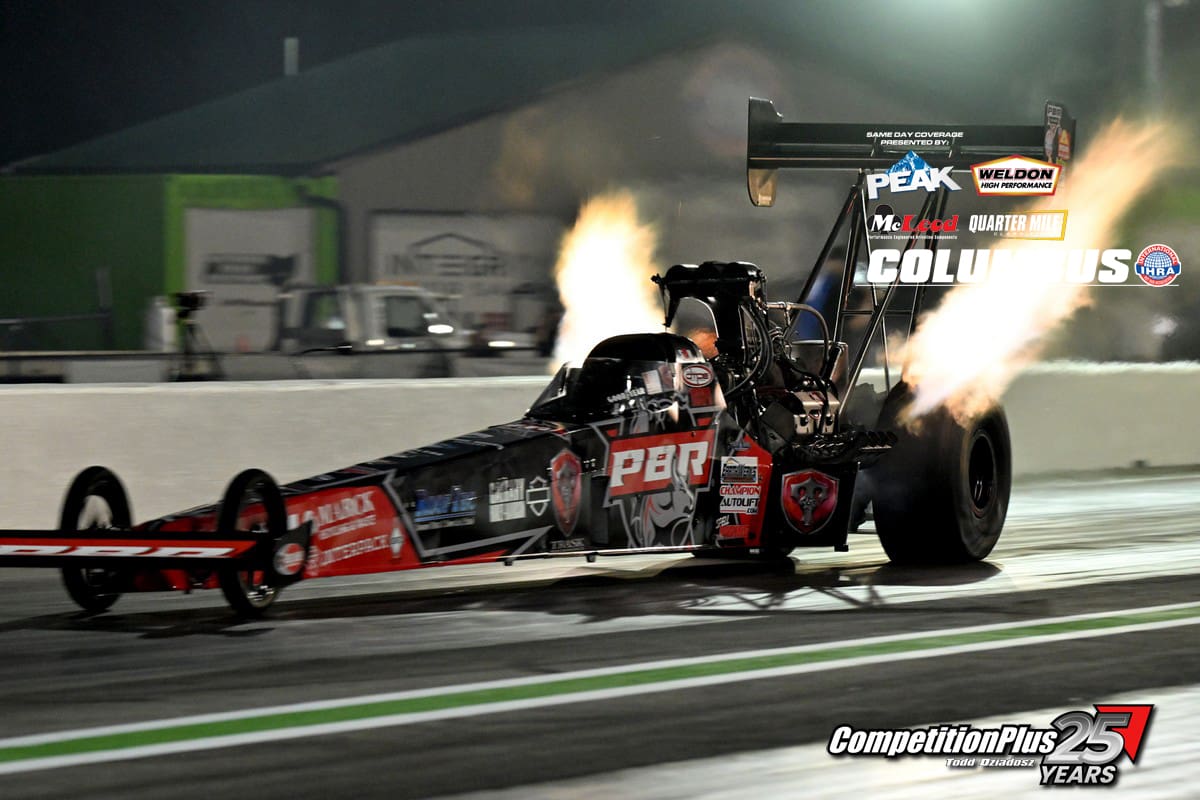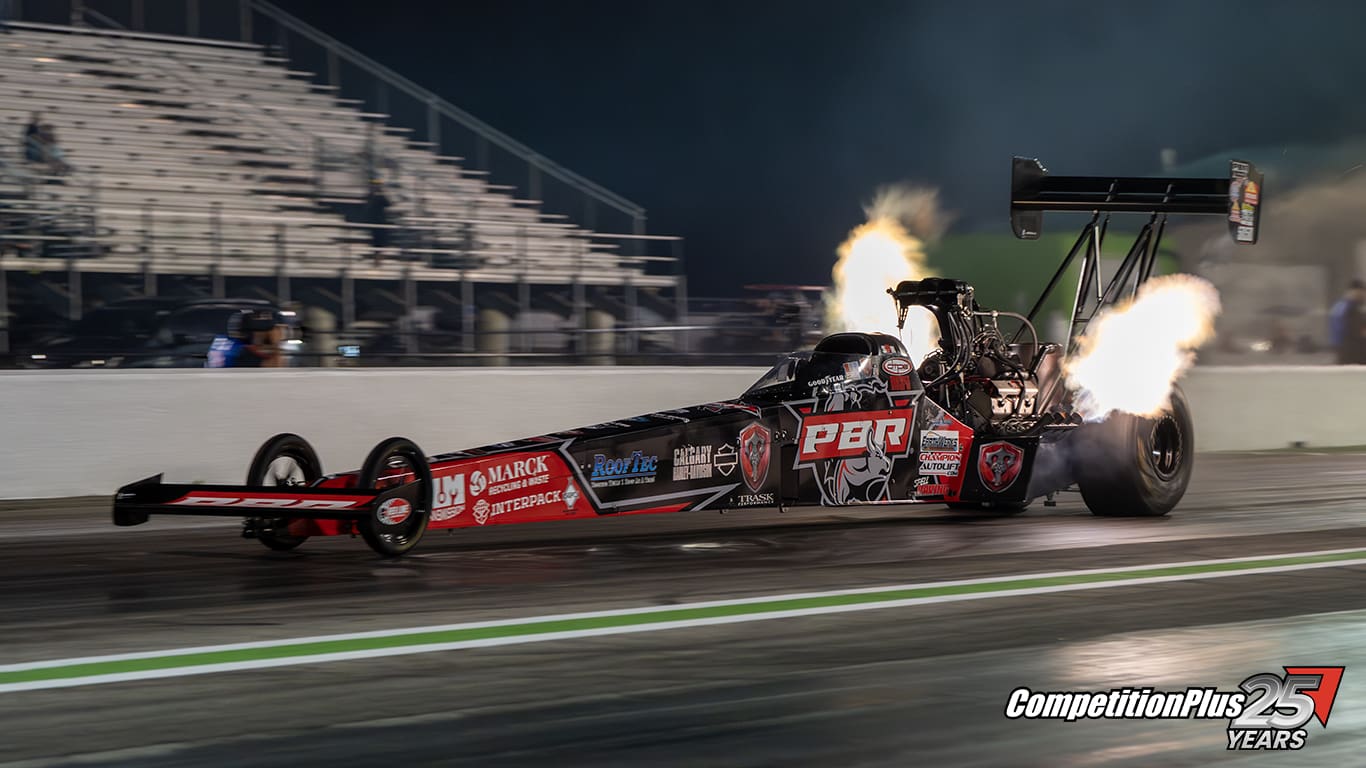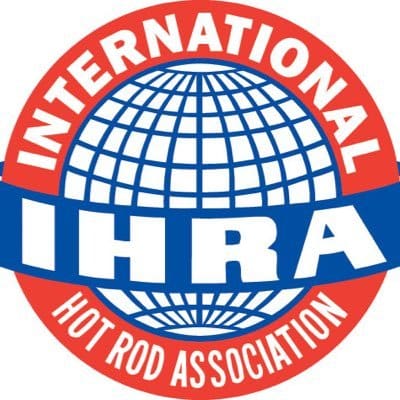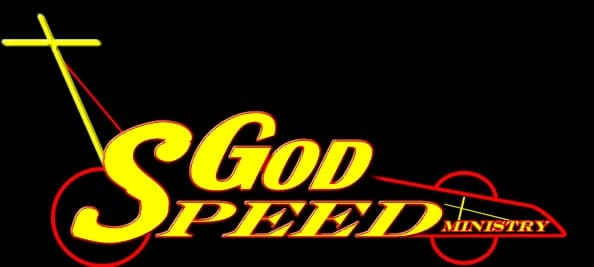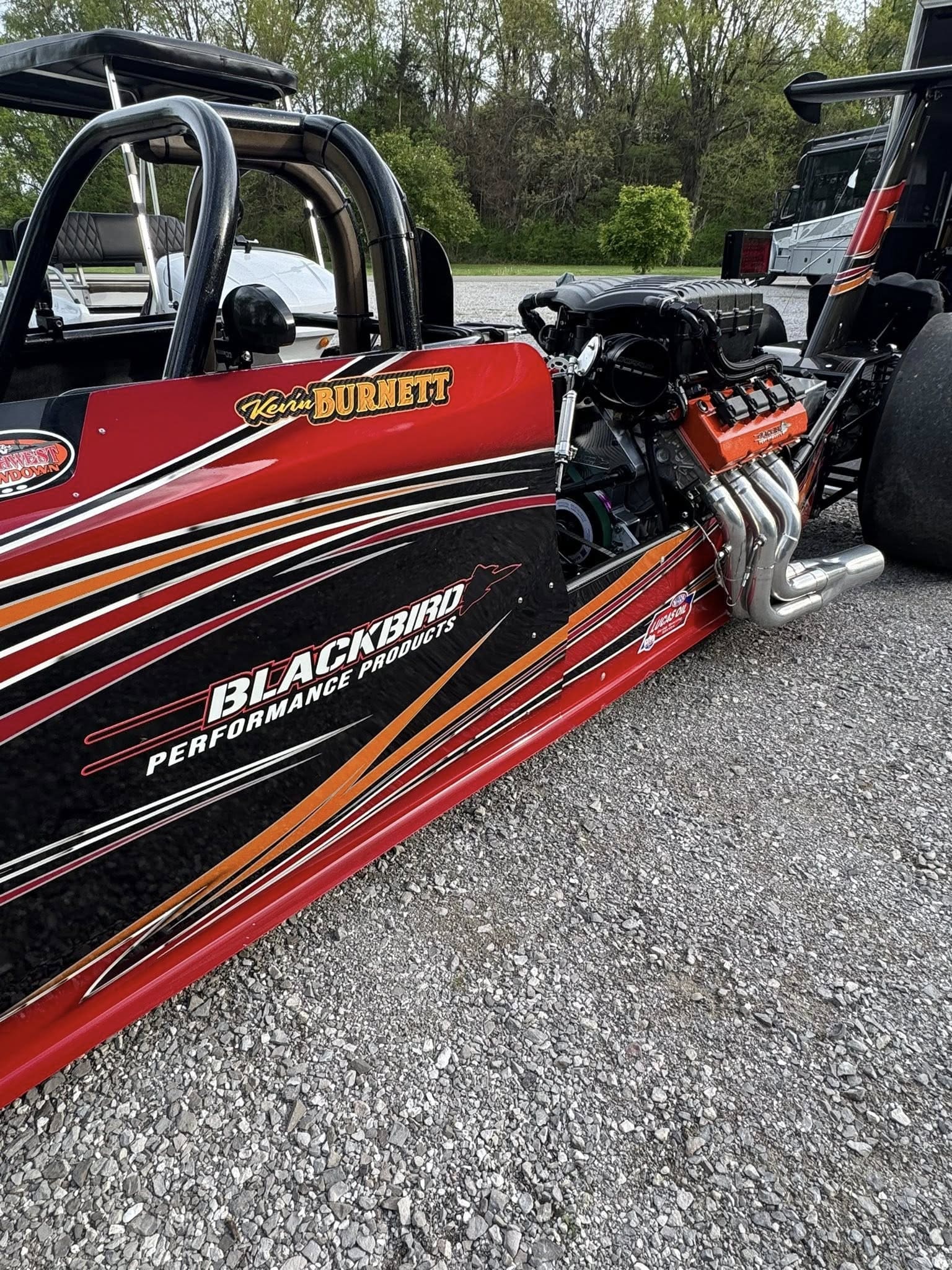 Back-to-back Competition Eliminator championships in 2003-04, as well as 16 national event wins, naturally generated a certain level of respect for Dean Carter in NHRA. Those accolades look great on paper, but the respect meter pegs when you see Carter on the dragstrip nestled into the cockpit of the front-engine Nostalgia Dragster he runs in Comp.
Back-to-back Competition Eliminator championships in 2003-04, as well as 16 national event wins, naturally generated a certain level of respect for Dean Carter in NHRA. Those accolades look great on paper, but the respect meter pegs when you see Carter on the dragstrip nestled into the cockpit of the front-engine Nostalgia Dragster he runs in Comp.
The Glendale, Ariz., drag racer knows no other way. His father, Ray, was deeply involved in drag racing throughout his youth.
“I got drug to racetrack after racetrack, but it was fun,” said Carter, whose own driving career was launched at the age of 16 at Wild Horse Pass Motorsports Park, then known as Firebird International Raceway.
“When Firebird first opened up, the guy my dad had driving the car couldn’t make it, so he put me in it,” recalled Carter. “I licensed and went all the way to the final and raced [Phoenix area engine builder and racer] Jim Basco.”
That prosperous first outing and pure enjoyment driving the car turned into a fruitful career for Carter, with his father as crew chief and builder. It was something they had always and only done together, and when Ray passed away in 2016, it left a question for his son.
“It was just, can you do it without him,” shared Carter. “My dad was an innovator and a master machinist, and he could build anything. He did everything, and [if I was going to continue], I couldn’t just show up. I had to orchestrate everything.”
That mainly came down to assembling all of the right parts and pieces and then putting the puzzle together – no easy task for such a specialized category of racing.
“Comp Eliminator takes a lot of building your own stuff and creating your own plan with an idea of how the engine goes together,” explained Carter, nodding to the necessity of ingenuity in the ultra-competitive world of Comp Eliminator. “And typically, in Top Dragster or Super Comp, those motor parts can be bought off the shelf and put together, but everything gets shipped from around the world to build an engine for Comp.
“When we had the engine shop, each part would get shipped in from a different place in the U.S. or even London. What we paid in shipping was almost what it would cost to build a Super Comp engine. Most of the time, you had to overnight or second-day air [parts] because you didn’t want them on the ground getting lost. We lost complete engines, or certain parts that were unique that we’d had made, and you have to start over.”
With roots so firmly entrenched in Comp and his son, Kevin, standing beside him, Carter made the decision to move forward and has since stuck with it. The first big project without his father was putting Kevin in the car to race for the very first time at the divisional in Phoenix.
“When my dad passed away, I knew enough from just watching him that I was able to put one engine together, put my son in the car, and run that race at Firebird,” said Carter. “He won it, and the engine wouldn’t even run after the final round, but it made it to the final and he won it.”
 Four years later, Carter experienced another of the most impactful wins of his drag racing career with a final-round victory of his own as he defeated Doug Lambeck at the NHRA Arizona Nationals. It was a return to victory after a too-long dry spell that Carter would not like to repeat; his most recent national event win before the 2020 triumph had been in 2007.
Four years later, Carter experienced another of the most impactful wins of his drag racing career with a final-round victory of his own as he defeated Doug Lambeck at the NHRA Arizona Nationals. It was a return to victory after a too-long dry spell that Carter would not like to repeat; his most recent national event win before the 2020 triumph had been in 2007.
“That stands out quite a bit for me,” said Carter. “We’d been trying to get back to that national level again, and we got there. We won the first one there and then several after that, but the years go by and you’re wondering, is it ever going to happen again? To have that happen at our home track where me and dad won the first one, and with all of my family there to enjoy it, that one really stood out.”
Carter and his father initially became interested in the front-engine class after a trip to Bakersfield to scope it out when it was brand new. There, they observed Bill Wayne’s very quick car and final-round performance and made moves to purchase the already-efficient front engine dragster. Although Wayne, who did not sustain major injury, crashed the car in the final round that day, the sale went through.
“We knew the recipe was there for fast, and we were going to make it faster,” said Carter. “[Wayne] ran 7.23 at Bakersfield, and we rolled it out and ran 7.09.”
The Carter’s innate ability to drum up speed continued, and they were the first to break into the six-second zone with a B/ND when Carter first recorded a 6.921-second pass, then backed it up with a 6.964 at the NHRA Sonoma Nationals.
In 2021, Carter reached another final round – this time at the fall national event in Las Vegas – and although the 2022 season was a tremendous challenge between repeated engine destruction, the continued struggle to get parts and pieces, and trying to map out a schedule based on those results, Carter isn’t done. He’s making plans for 2023.
“We’re in the process of putting all these motors back together, and with good luck, we’ll have most of them done by January or February,” said Carter, laying out early plans to race the final national and divisional events to be held at Wild Horse Pass Motorsports Park. Son Kevin may also aim at qualifying for the JEGS Allstars, but Carter leaves that up to him – Kevin and his wife both work full time, and they have a 3-year-old and another baby on the way.
Either way, Carter plans to carry on with the cohorts he claims in NHRA’s South Central Division 4.
“The reason we started Comp was because my dad was intrigued when they added the class – this is what he was good at building,” he explained. “But I also really like the people you meet and the extended family you make.
“My wife, Kimberly, continues to be so supportive. She wasn’t around racing at all, but I explained to her how fun it is. Division 4 creates that same family atmosphere that I grew up in, and we’ve met a lot of good, honest people. We like to cookout and genuinely have a good time – that’s a big part of this for us.”












